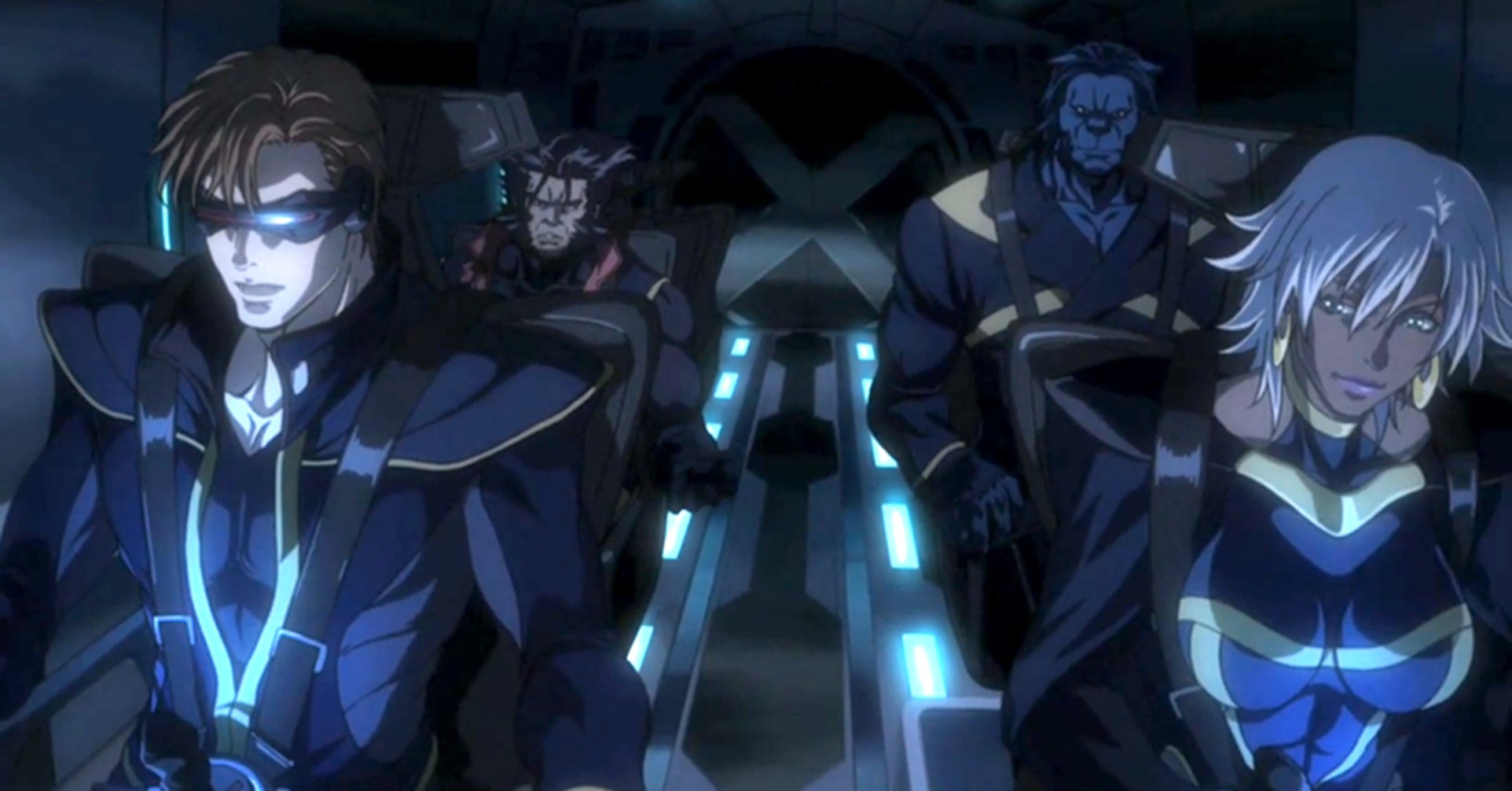
It appears highly likely that we’ll witness another Marvel animation coming soon, given the extensive comic book company’s past involvement in the anime genre. Disney has already demonstrated their interest in the anime realm, with the anthology series “Star Wars Visions” serving as a compelling testament. With both Marvel and anime enthusiasts eagerly anticipating a potential future collaboration, we believe this is an opportune moment to delve into previous partnerships that significantly impacted everyone involved. Indeed, there were numerous Marvel-anime crossovers to select from.
The Avengers Vs. Attack on Titan
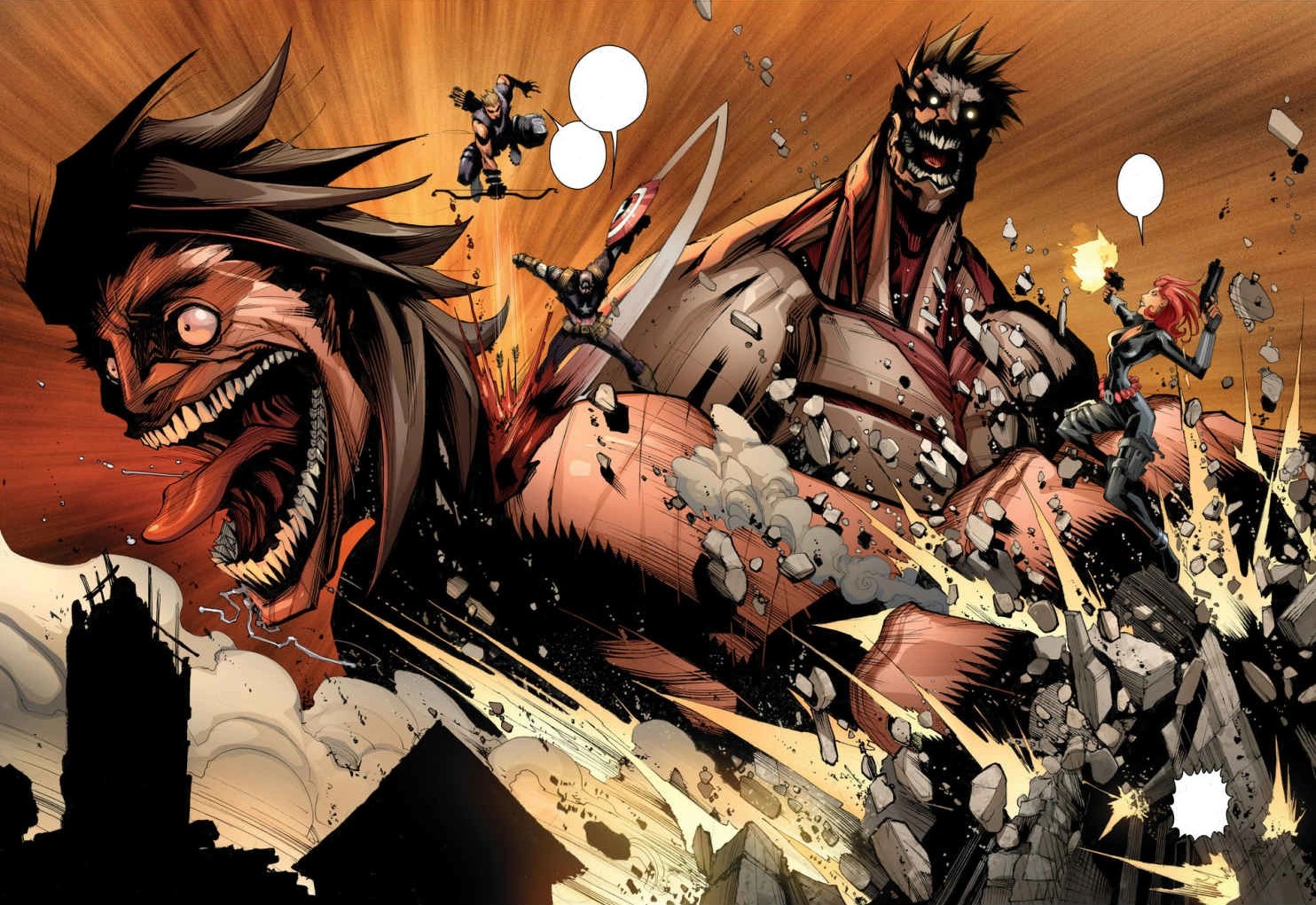
The one-shot comic “Attack on Avengers” was penned by Hajime Isayama, who’s famous for creating Attack on Titan. This unique tale placed Earth’s strongest superheroes against flesh-eating giants. Released in North America in 2015, the story didn’t delve deeply into the crossover, but it was a thrilling blend of two distinct universes. The narrative culminated with a suspenseful cliffhanger featuring the Guardians of the Galaxy joining the battle, demonstrating that the realms of American comic books and Japanese manga could merge effectively if required.
Deadpool Meets My Hero Academia’s All Might

The manga titled “Deadpool: Samurai” marked not only the debut of a comic solely dedicated to Marvel’s unconventional hero Deadpool, but also the initial instance where Wade Wilson crossed paths with UA Academy’s realm. During a battle against the Mad Titan Thanos, Deadpool found an unexpected ally in All Might, a figure once emblematic of peace who is well-known from the popular series “My Hero Academia“. Although this collaboration, similar to the Avengers confronting the Titans, has yet to be animated, there remains optimism that this distinctive crossover could someday make its way onto the screen.
Marvel’s Madhouse Anime
In 2010, arguably the most significant Marvel comic book collaboration with anime took place when Studio Madhouse (known for their work on “One-Punch Man” and “Trigun”) produced not one, but four anime series based on Marvel characters. These series featured X-Men, Wolverine, Iron Man, and Blade, each running for a single season. Despite no further seasons being produced, this collaboration demonstrated that the vibrant world of Marvel can seamlessly blend with the anime medium.
Avengers Confidential

Although not directly related to the Marvel anime series produced by Studio Madhouse earlier, this production studio collaborated with Marvel Entertainment once more in 2014, creating a film titled “Avengers Confidential: Black Widow & Punisher.” Contrary to its title suggesting a narrative centered around Earth’s Mightiest Heroes, the story primarily focuses on Frank Castle rather than Steve Rogers or Tony Stark. In this movie, the duo embarks on an action-packed, world-trotting mission together, offering anime fans a glimpse of what a “Punisher anime” could be. Interestingly, Frank was voiced by actor Norman Reedus, famous for his roles in “The Walking Dead” and “Death Stranding,” further linking him to the Marvel Universe.
Marvel Disk Wars: The Avengers

Introduced back in 2014, Marvel Disk Wars seems like a forgotten gem showcasing Marvel’s potential in the realm of anime production. Co-produced by Toei Animation (famous for One Piece and Dragon Ball) and Marvel Entertainment, this series ran an impressive fifty-plus episodes and did a commendable job of featuring both Marvel heroes and villains extensively. The intriguing aspect of the show revolved around the Avengers being trapped within “disks,” with main characters utilizing these disks as if they were Pokemon in combat scenarios.
Marvel Future Avengers
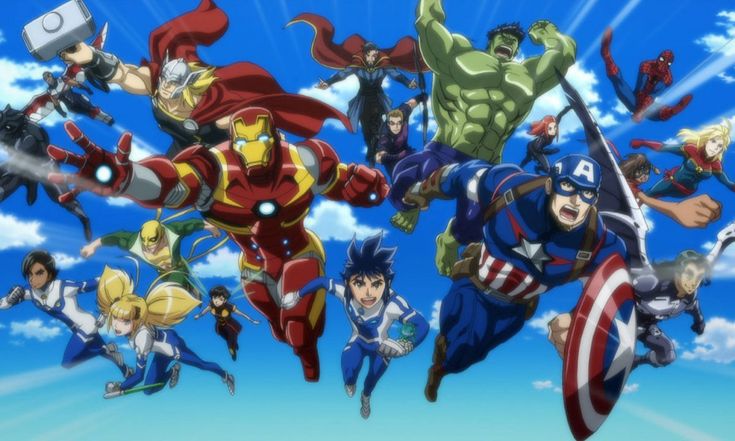
Once more, Studio Madhouse collaborated with Marvel to transfer the Avengers from their “disks” into a narrative focusing on altering the destiny of misguided super-powered children. The show revolved around Chloe, Makoto, and Adi, three youngsters who were brought up by Hydra under the impression that the organization was benevolent, similar to the series Disk Wars. Over two seasons, Future Avengers successfully highlighted some of Marvel’s top heroes.
Spider-Man: The Manga

1970 marked the debut of “Spider-Man: The Manga” in Japan, offering a fresh perspective on the web-slinger. Instead of developing new tales revolving around Peter Parker, this incarnation of Spidey was named Yu Komori. He retained his powers from a radioactive spider and wore the same attire as his American counterpart. However, an unfortunate twist occurred when Komori accidentally took someone’s life with his new abilities. The series ran for eight volumes but never got an anime adaptation, which is regrettable given the unique characters it introduced to the “spider-lore.
The Marvel Mangaverse
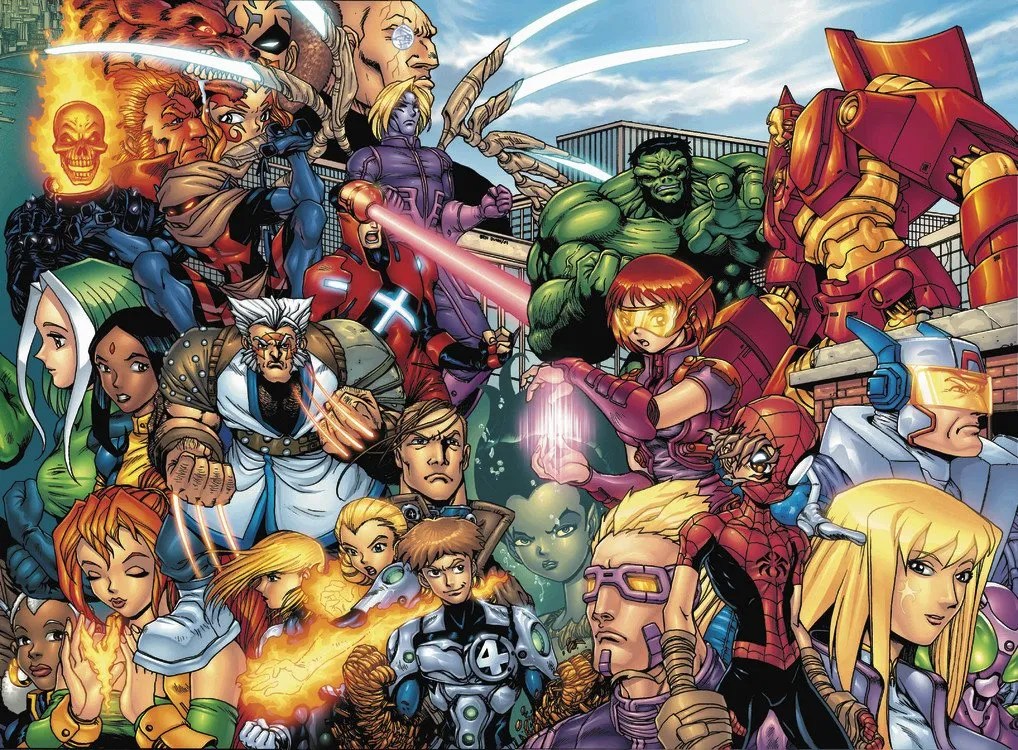
In 2000, Marvel Comics launched a unique version of their universe called Mangaverse, characterized by a manga-inspired style. This reimagining extended to the visual design of many of their characters, and even their histories, powers, and personalities were significantly altered to fit this new world. Among all the new characters born in this Mangaverse, it was Spider-Man’s counterpart who endured longest due to the Spider-Verse concept, making subsequent appearances beyond the closure of this universe.
Spider-Man: Fake Red
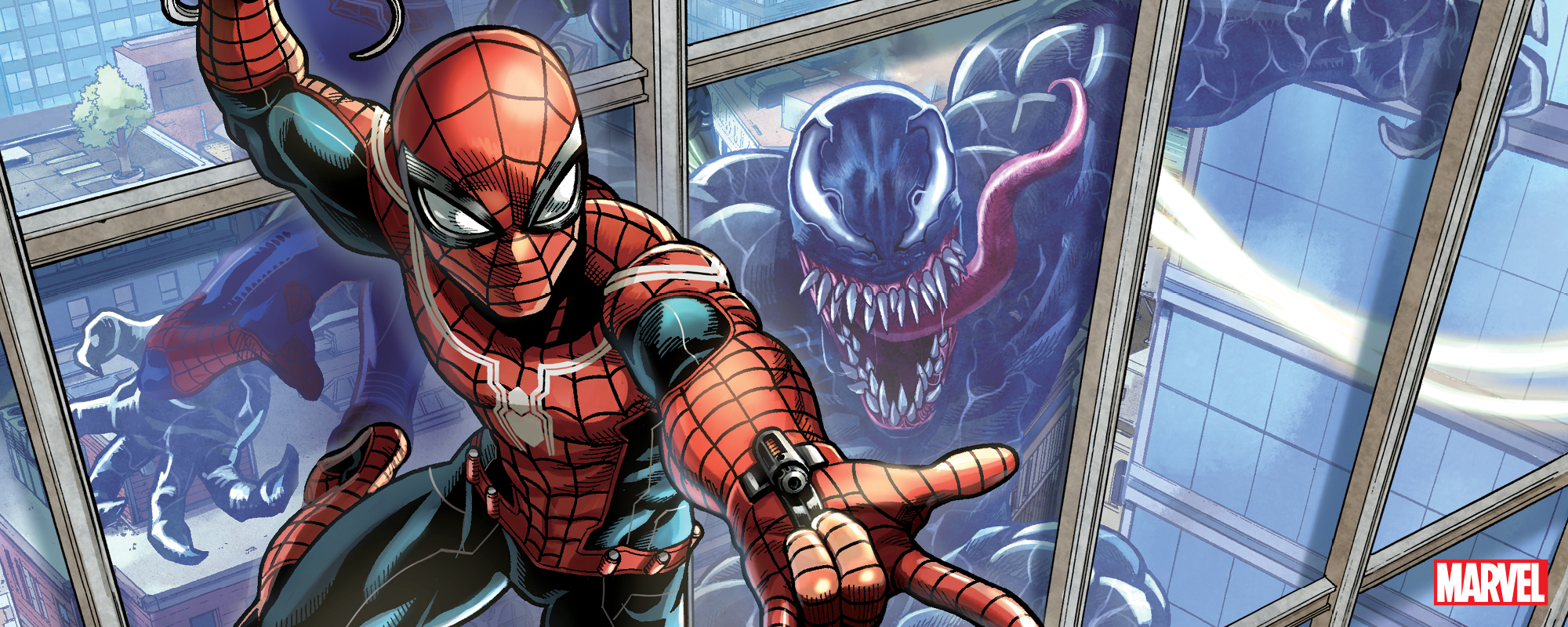
Yuusuke Oosawa authored the manga “Spider-Man: Fake Red”, a collaboration between Marvel and Shueisha. Unlike retelling the tales of New York City’s most iconic hero, “Fake Red” imagines what could happen if a high school student finds Peter Parker’s costume and decides to do good without spider-powers. Originally published in 2019, this standalone story would make an excellent anime film, so let’s hope we eventually get to see this Marvel and manga collaboration fully animated.
Stan Lee in Heroman
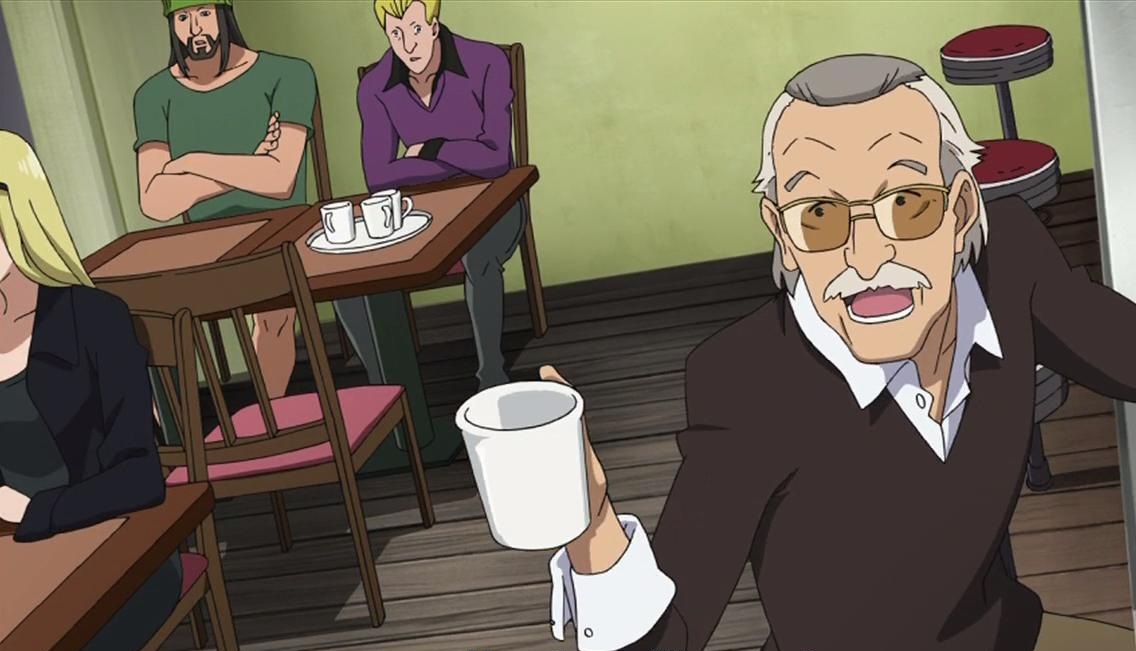
Though not a traditional Marvel crossover, it’s worth noting that Stan “The Man” Lee played a role due to his involvement in the project. In fact, he was even incorporated as a character for an anime adaptation of his manga Heroman. What makes this interesting is that the anime itself was produced by Studio BONES, years before they worked on My Hero Academia. If you’re interested, you can stream the full twenty-six-episode series on Crunchyroll.
https://comicbook.com/anime/news/marvel-artist-perfect-blue-anime-art/embed/#
Read More
- How to Get the Bloodfeather Set in Enshrouded
- Gold Rate Forecast
- 4 TV Shows To Watch While You Wait for Wednesday Season 3
- 32 Kids Movies From The ’90s I Still Like Despite Being Kind Of Terrible
- 10 Movies That Were Secretly Sequels
- Auto 9 Upgrade Guide RoboCop Unfinished Business Chips & Boards Guide
- Best Werewolf Movies (October 2025)
- Goat 2 Release Date Estimate, News & Updates
- One of the Best EA Games Ever Is Now Less Than $2 for a Limited Time
- 7 Masterpiece Sci-Fi Shows Based On Books
2025-07-17 23:40